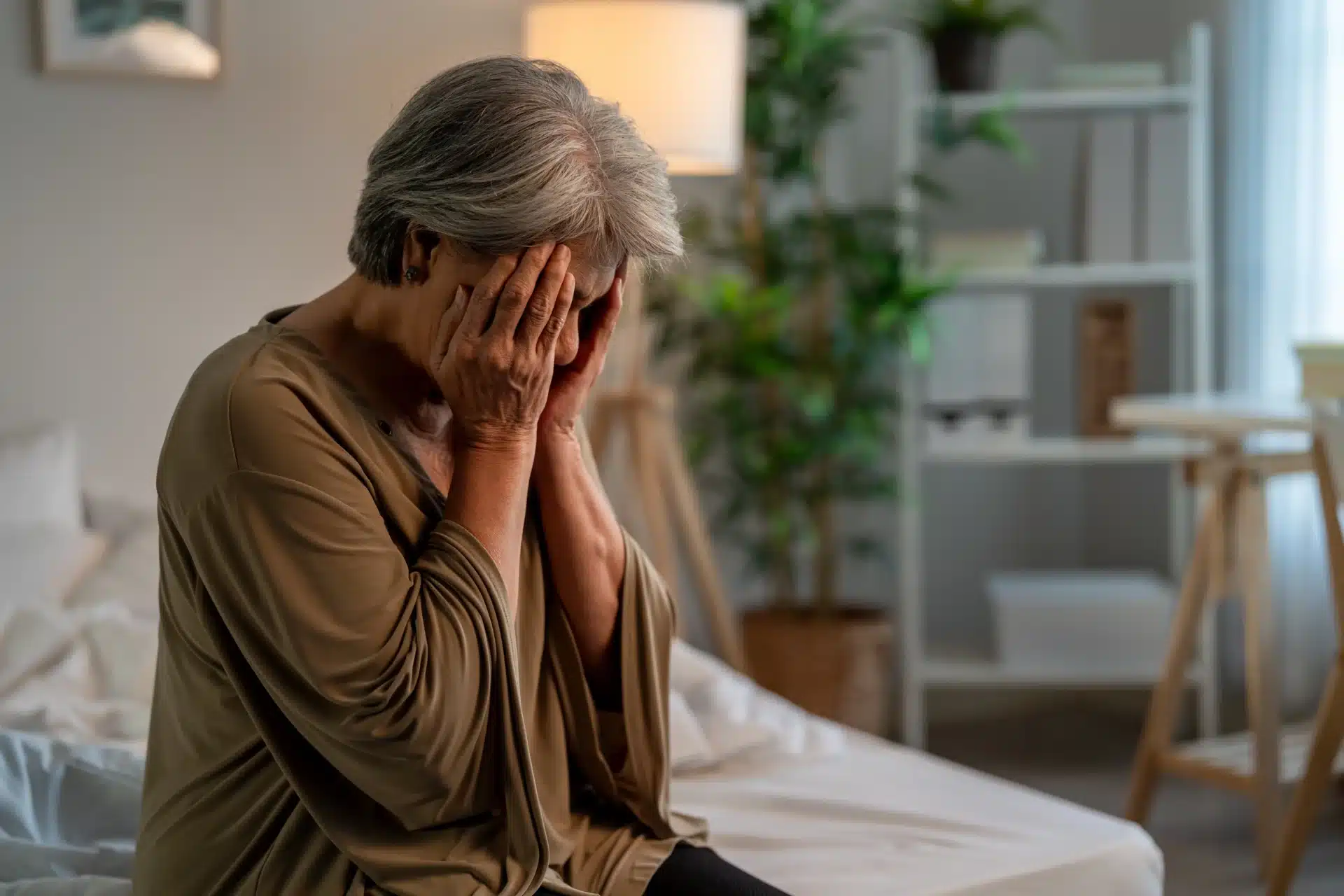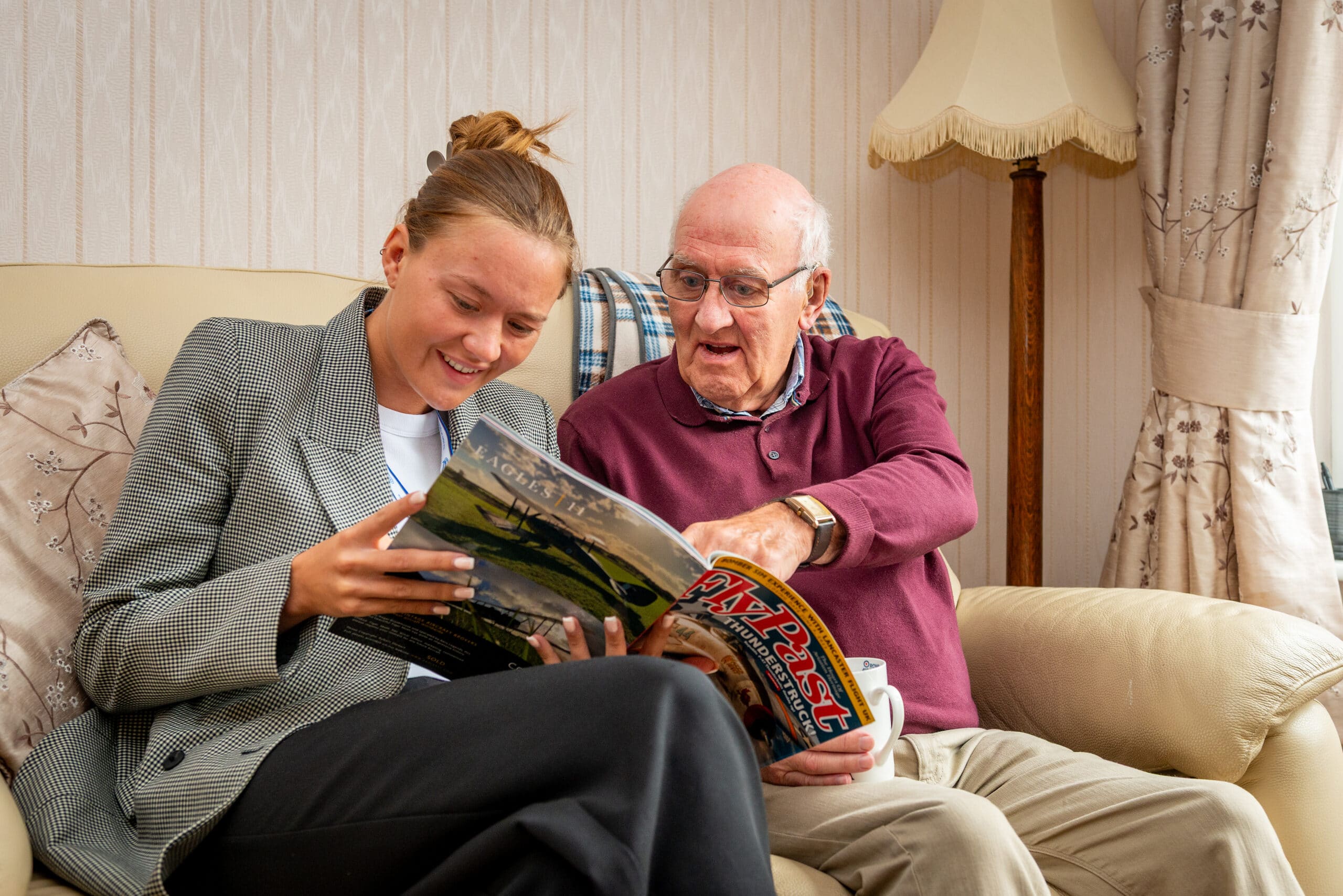Guide to Depression in Older People

Depression in older people is a serious but often misunderstood condition. While it’s natural to experience emotional ups and downs with age, persistent feelings of sadness may signal something deeper. Recognising the signs and knowing how to help can make a real difference in someone’s quality of life.
Depression in Elderly People
Depression in elderly people is not a normal part of ageing. However, factors including bereavement, illness, loneliness, or life changes can trigger it. Unfortunately, depression in older people is frequently underdiagnosed. Symptoms may be mistaken for physical health issues or dismissed as part of getting older.
Older adults may not always express sadness in the way younger people do. Instead, they might appear withdrawn, irritable, or tired. Some may struggle to articulate how they’re feeling, especially if they’re also living with dementia or cognitive decline.

Depression Symptoms in Older People
Spotting the signs of depression in older people can be challenging. This is especially difficult when symptoms overlap with other age-related conditions. Common indicators include:
- Persistent low mood or sadness
- Loss of interest in hobbies or social activities
- Changes in appetite or weight
- Sleep disturbances
- Fatigue or lack of energy
- Difficulty concentrating or making decisions
- Feelings of worthlessness or guilt
- Physical aches and pains without a clear cause
- Neglect of personal care or household tasks
- Expressions of hopelessness or suicidal thoughts
If you notice these signs in someone, it’s important to take them seriously and seek support.
How to Help a Person with Depression
Start a Conversation
Begin by gently asking how the person is feeling. Many older adults may struggle to express their emotions. It’s important to listen with patience and without judgement. Simply being present and showing that you care can help them feel less alone.
Encourage Routine
Music therapy, and art can spark joy, evoke memories, and encourage interaction. These activities can be carried out in a way that feels natural and comforting.
Promote Activity
Engaging in hobbies, social interaction, or time outdoors can have a positive impact on mood. This could be through gardening, knitting, or joining a local group. Gentle encouragement to stay active can help reduce feelings of isolation and improve wellbeing.
Stay Connected
Loneliness is a major contributor to depression in older people. Regular phone calls, visits, or even video chats can help maintain emotional connection. They remind an individual that they’re cared for and supported.
Support Healthy Habits
A balanced diet and good sleep hygiene are essential for emotional health. You can help by encouraging nutritious meals, limiting caffeine, and creating a calming bedtime routine. This can support better rest.
Help Them Seek Professional Support
If symptoms persist, it’s important to guide them toward professional help. Encourage them to speak to their GP. If they express suicidal thoughts, contact their GP, NHS 111, or Samaritans on 116 123 immediately for urgent help.

Support for Depression in Older People
There are many sources of support available to help older adults manage depression. NHS Talking Therapies offer free, confidential psychological support tailored to older people. This includes those living with long-term health conditions or in care settings. Charities such as Age UK provide guidance and companionship services. They also have a free helpline (0800 678 1602), which is open daily. Local mental health services and community groups also play a vital role. They offer counselling, peer support, and opportunities for social connection. At Caremark, we train our care assistants to recognise signs of depression and provide compassionate, person-centred support. We help older people to feel less alone, and to access the care and understanding they deserve.
Why It Matters
Depression in older people is more common than many realise, but it’s also treatable. With the right support, older adults can manage their symptoms and live fulfilling lives. Whether you’re a family member, carer, or healthcare professional, your understanding and care can make all the difference.

How Caremark Can Help
At Caremark, we provide high-quality, professional care that empowers individuals to live their best lives. Our kind and trustworthy care assistants are key to the tailored care we provide. Our customers are at the heart of everything we do, so we strive to support every one of their needs in managing their conditions.
Would you like to learn more about the care services we provide? Get in touch and discover how we can support you or someone you love. From dementia care to respite care, we are here to help.